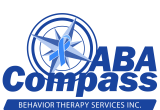Parents and caregivers frequently express anxiety about managing problematic behaviors in children with Autism Spectrum Disorder (ASD). Applied Behavior Analysis (ABA) therapy employs a range of strategies to effectively address these habits. This blog post looks at practical tactics and approaches used in ABA therapy to handle problematic behaviors and promote positive outcomes.
Understanding Challenging Behaviors
Aggression, self-injury, tantrums, and non-compliance are all examples of challenging behaviors. These behaviors are frequently motivated by communication challenges, sensory sensitivities, or unmet needs. Identifying the fundamental reason is the first step toward properly dealing with these behaviors.
ABA Therapy Techniques for Managing Challenging Behaviors:
- Functional Behavior Assessment (FBA).
Functional Behavior Assessment (FBA) is a systematic approach to determining the underlying causes and functions of problematic behaviors. Therapists can build tailored interventions by knowing why certain behaviors occur. FBA normally includes:
Observation entails watching the youngster in various circumstances to detect patterns.
Data collection entails documenting instances of behavior, including antecedents (what happened before) and effects (what happened after).
Hypothesis development entails making educated predictions regarding the function of the behavior.
Positive reinforcement is the process of rewarding favorable behaviors in order to improve the likelihood that they will occur again. This strategy is crucial in ABA therapy and may include:
Tangible rewards include items such as stickers, toys, and refreshments.
Social rewards include praise, high-fives, and embraces.
Activity Rewards: Access to your favored activities or games.
- Teaching Alternative Behaviors.
Replacing problematic habits with more appropriate alternatives is critical. This involves:
Skill Development: Teaching communication skills such as utilizing words or gestures to express requirements.
Modeling means demonstrating suitable behaviors for the kid to mimic.
Practice: Allowing students to practice new abilities in a variety of settings.
- Visual Supports.
Visual supports can assist youngsters in understanding expectations and routines, lowering anxiety and challenging behaviors. These may include:
Visual schedules are charts that outline everyday tasks.
Social Stories are short narratives that describe social situations and acceptable reactions.
Visual cues are pictures or symbols that remind a kid of expected behaviors.
- Environmental modifications
Another helpful method is to change the environment to limit the number of triggers for problematic behaviors. This may involve:
- Creating a Calm Space: Designating an area where the youngster can relax.
- Modifying lighting, noise levels, or textures to meet the child’s sensory needs.
- Establishing Clear barriers: Using physical or visual barriers to define spaces and expectations.
- The importance of consistency and patience
In order to manage tough behaviors, you must be consistent and patient. Caregivers and therapists must collaborate to ensure that methods are used consistently across many settings. Regular monitoring and modifications based on the child’s development are also required.
Importance of Professional Support
While these tactics can be very effective, they require professional help from qualified ABA therapists. ABA Compass offers complete services, such as assessments, tailored therapy programs, and continuing support, to assist children with autism in thriving.
Conclusion
Managing problematic behaviors in children with autism necessitates a deliberate and strategic approach. Caregivers can promote positive behavior changes and improve the quality of life for autistic children by employing ABA therapy approaches such as positive reinforcement, teaching alternative behaviors, and making environmental alterations. At ABA Compass, we are devoted to providing the expertise and support required to properly implement these techniques.


